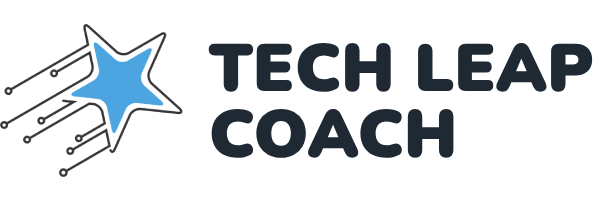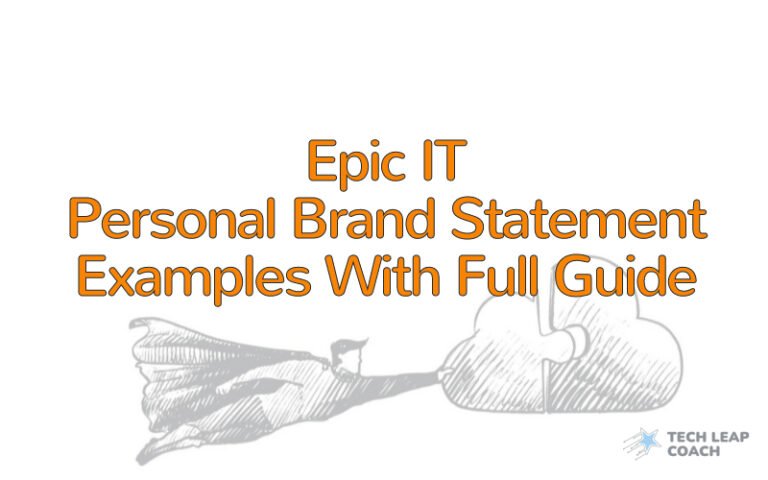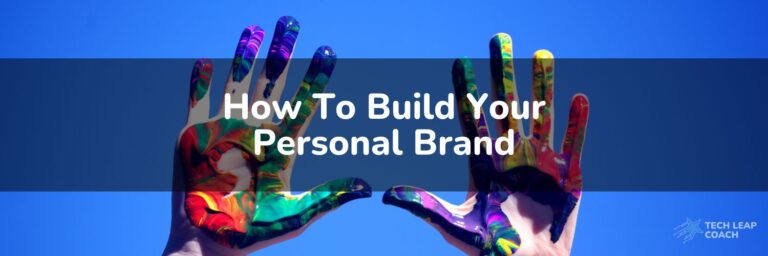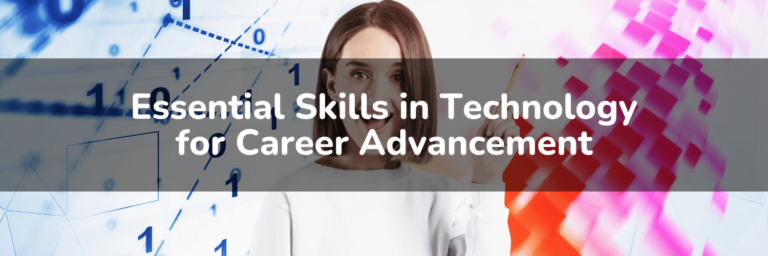Maximizing Success: 10 Must-Have Work Related Strengths for Professional Growth
I’m sure you could instantly name someone around you who seems to be unstoppable in their career.
It’s not just luck.
Certain work related strengths (that you can learn) are required if you want to get ahead professionally.
In this straight-to-point guide, you discover the 10 indispensable strengths that lead to excellence and learn practical strategies to develop these skills.
Whether you’re aiming to impress in your current role or seeking new opportunities, these insights can be your green light for professional growth.
TL;DR
Critical thinking and creative problem-solving are key to navigating complex work challenges, and strong communication skills are essential for collaboration and understanding in the workplace.
Adaptability, resilience, and continuous learning are necessary for thriving in a rapidly changing job market, ensuring professionals can pivot and grow with new challenges.
Technical prowess and industry knowledge are foundations of career advancement, while personal attributes like positivity, empathy, and integrity shape a positive work culture and drive team success.
Critical Thinking and Problem Solving

At the heart of any thriving career lies the power of critical thinking and problem-solving.
These are the cognitive tools that carve pathways through the densest of corporate challenges, turning obstacles into stepping stones. Critical thinking is about harnessing the synergy of knowledge, facts, and evidence-based results to navigate the complexities of the workplace.
This approach is not only pivotal in achieving goals but is also instrumental in overcoming hurdles, saving precious time and money for businesses.
Let’s further dissect these cognitive champions and understand how you can sharpen them for your professional arsenal.
Analytical Skills
The essence of analytical skills lies in the ability to dissect a problem, identify its components, and construct a logical solution.
It’s like being a detective within your professional realm, where critical thinking and problem-solving skills pave the way for clear and rational deductions.
To excel in analytical thinking, one must dive deep into research, gathering and sifting through data to detect patterns and plan ideas.
By integrating this information, you’re equipped to:
Make decisions that are not just quick but also astutely informed
Develop analytical capabilities, which are among the most sought-after employee strengths
Use these capabilities as a beacon for navigating the intricacies of job responsibilities
Creative Solutions
In the maze of modern business problems, sometimes the well-trodden paths don’t lead to the prize.
Here’s where creative solutions come into play, offering innovative exits from challenging situations. When conventional methods fall short, creativity leaps forward, delivering ‘out-of-the-box’ ideas that can propel companies into exciting new directions.
Leaders blessed with creative insight can guide their teams toward innovative thinking, crafting paths less traveled that often lead to groundbreaking success.
Encouraging team collaboration around creative problem-solving can cause solutions that not only resolve current issues but also pave the way for future innovations.
If you work in IT, be sure to avoid the most shameful mistakes that others do. Learn how from my free 5-day email course here:

Decision-Making
The clock is ticking, and the decisions we make can either propel us forward or hold us back.
Effective decision-making skills are the rudder that steers the ship through the stormy seas of business challenges.
By focusing on critical tasks, employees can amplify their decision-making prowess, leading to heightened productivity and a cascade of successful outcomes.
It’s also about reading the room — interpreting signals from colleagues and clients to make decisions that resonate with success at every turn. When innovation meets decision-making, the result is a dynamic force that pushes professional development to new heights.
Communication and Interpersonal Skills

In the tapestry of workplace success, the threads of excellent communication skills and interpersonal abilities weave patterns of collaboration and understanding.
These soft skills are the glue that binds relationships, ensuring seamless information flow and reducing the potential for costly misunderstandings. Whether it’s resolving conflicts, comforting coworkers, or fostering a positive work environment, the impact of strong communication skills resonates throughout the organizational fabric.
For leaders, it’s the megaphone that amplifies their vision, driving teams toward peak efficiency and collective success.
But what does it take to communicate effectively? It’s an art that extends beyond verbal exchanges, encompassing the finesse of written correspondence and the subtleties of non-verbal cues.
Active Listening
Ever been in a conversation where you felt truly heard?
That’s the magic of active listening. It’s the skill that ensures you grasp the full picture, avoiding the pitfalls of miscommunication and the errors they breed. Active listening isn’t just about nodding along; it involves verbal affirmations and picking up on nonverbal signals that convey engagement and understanding.
By actively listening, you can:
Build trust and rapport, which are the cornerstones of strong workplace relationships
Enhance comprehension
Create a supportive work environment
Boost productivity for everyone
The ripple effect of this practice is profound and benefits everyone involved.
Emotional Intelligence
Have you ever noticed how some colleagues just seem to ‘get’ you?
Chances are, they’re emotionally intelligent. This skill goes beyond understanding emotions; it’s about using that awareness to manage interactions productively.
When emotional intelligence is in play, work relationships blossom and conflicts become easier to navigate, resulting in more harmonious and effective team dynamics.
It’s a strength that not only improves personal interactions but also enhances the capacity for creative problem-solving, as a deeper understanding of emotions allows for more nuanced and considerate solutions.
Conflict Resolution
Every workplace faces conflicts, but not all handle them with finesse.
Those adept at conflict resolution can turn tense situations into opportunities for growth and collaboration. By bringing together individuals with diverse strengths, conflict resolution paves the way for novel and effective problem-solving.
It’s not just about putting out fires; it’s about creating a framework where ideas can clash without egos clashing, where innovation is born from the melding of differing perspectives.
Adaptability and Flexibility

In the ever-shifting landscape of today’s workforce, adaptability and flexibility are not just buzzwords; they are essential traits for anyone looking to ride the waves of change rather than being swept away by them.
These strengths enable professionals to recognize when it’s time to pivot, embracing new challenges as opportunities for growth.
When teams are adaptable, their collaboration takes on a new level of effectiveness, powering through obstacles and boosting productivity. Let’s delve into the nuances of these transformative qualities.
Change Management
Change is the only constant, and managing it well is the hallmark of a successful organization. Effective change management is about:
Steering the company ship through the waters of new market conditions with confidence and agility
Keeping the company in a state of readiness, where adaptability is the norm
Energizing employees to meet new challenges head-on
Managing change on both the micro and macro levels enables the entire organization to pivot with minimal disruption, ensuring continuous development and team collaboration.
Learning Agility
In a world where change happens at the click of a button, learning agility is your best defense.
It’s about eagerly absorbing lessons from experiences and swiftly applying them to flourish in new scenarios.
The quickness of thought and flexibility in action characterizes this quality, allowing professionals to stay ahead of the curve for technological advancements and market shifts.
Whether it’s through professional development or on-the-job learning, those who embrace continuous learning are the ones who will not just survive but thrive in the face of change.
Resilience
When the going gets tough, the resilient get going.
This strength is about maintaining a positive attitude and bouncing back from setbacks with renewed vigor. Failures does not deter leaders who embody resilience; instead, they use them as fuel to forge ahead, setting an example of perseverance for their teams.
For professionals at all levels, resilience is the springboard that helps them leap over unexpected challenges, ensuring that no obstacle is insurmountable.
Leadership and Teamwork

Leadership and teamwork are the twin engines that drive the organizational vehicle towards its destination.
Effective leaders are not lone wolves; they are maestros who orchestrate a symphony of skills, including:
problem-solving
organization
communication
emotional intelligence
to draw out the best in their teams.
Leaders foster a spirit of unity to ensure team efforts align with the company’s vision while honoring individual contributions.
Employing leadership skills with finesse inspires individuals, materializes plans, and fosters innovation, all of which are essential for staying competitive in today’s market.
Visionary Leadership
Visionary leaders are:
The compass that points to the true north of organizational success
Have the uncanny ability to inspire and direct their teams towards outcomes that resonate with success
Bold explorers, charting new territories in markets and ventures
Igniting the spark of innovation within their companies
Their willingness to take strategic risks is a catalyst for growth, propelling the organization forward into an unexplored realm of possibility.
Collaboration
It’s impossible to overstate the power of collaboration.
Visionary leaders understand that fostering teamwork is crucial for the birth of new products and initiatives, as well as for nurturing innovation. Companies like Amazon and Google have reaped the benefits of fostering a collaborative culture, demonstrating that when teams work together, the sky’s the limit.
By aligning team members around shared goals and providing constructive feedback, collaboration becomes a well-oiled machine, driving towards company goals and greater success.
Delegation
Delegation is not just about assigning tasks; it’s about empowering team members to take ownership and excel.
Clear communication of expectations is essential to ensure that everyone is on the same page and performs tasks to the highest standard.
Entrusting team members with important responsibilities allows their sense of ownership to blossom, and it also boosts their job satisfaction.
It’s a win-win: employees grow professionally as they tackle new challenges, and the organization benefits from the expanded capabilities of its workforce.
Technical Skills and Expertise

In an era dominated by technology and specialized knowledge, technical skills and expertise stand as the bedrock of professional capability.
Whether it’s coding, data analysis, or specialized equipment operation, these skills are the currency of job performance and career progress.
As industries evolve and new technologies emerge, the professionals who invest in expanding their technical skill-set and gaining new skills are the ones who adapt and excel.
This continuous investment in technical expertise is not just about keeping up; it’s about leading the charge in innovation and professional development.
Industry-Specific Knowledge
To navigate the waters of your industry with confidence, you need to be well-versed in its currents and undercurrents.
This is where industry-specific knowledge comes into play. Understanding the nuances of your sector, from market dynamics to product development, can give you a significant edge over the competition. It’s about staying informed, recognizing trends, and seizing opportunities as they arise.
With five levels of industry competency, from foundational to mastery, every step up represents a deeper command of your field and an increased potential for innovation and leadership.
Digital Proficiency
In our digital age, being tech-savvy is not just a bonus; it’s a requirement.
Digital proficiency is a cornerstone of modern employment, with a staggering 92% of jobs demanding some digital know-how.
This gap in digital skills presents both a challenge and an opportunity for the modern workforce, as those who are digitally adept often command higher salaries and better job prospects.
Embracing and mastering digital tools and platforms is thus a clear pathway to personal and professional growth, opening doors to new realms of possibilities within any industry.
Data Analysis
Data is the new gold in the information economy, and the ability to mine and refine this resource through data analysis is invaluable. Analytical prowess is necessary for:
making sense of the vast data seas
enabling informed decision-making
leading to increased revenue
trailblazing innovation.
Whether it’s understanding consumer behavior, optimizing operations, or predicting market trends, data analysis skills are pivotal in transforming raw data into strategic insights that power business success.
Time Management and Organization
Juggling myriad tasks and deadlines is a daily challenge in the professional world.
In that role, time management and organizational skills shine by conducting the workplace symphony and ensuring that every note is played at the right time.
By mastering these skills, professionals not only complete tasks and meet deadlines but also strike a harmonious balance between work and life, making room for personal fulfillment alongside career achievements.
Let’s explore how prioritizing, planning, and maintaining focus can transform chaotic schedules into a well-orchestrated performance.
Prioritization
Prioritization is the art of distinguishing the urgent from the important, the critical from the trivial.
By focusing on tasks that matter most, productivity is not just maintained; it’s amplified.
This skill is about managing workload expectations and reducing stress, leading to a more motivated and less anxious workforce. Some key benefits of prioritization include:
Increased efficiency and productivity
Improved time management
Reduced stress and overwhelm
Enhanced decision-making
Better work-life balance
By prioritizing effectively, you can achieve more in less time and create a more balanced and fulfilling work experience.
Tools like to-do lists can help visualize and organizing tasks by their priority, ensuring that individuals channel their efforts effectively and efficiently.
Delegation as prioritization can ease bottlenecks, allowing for smoother project execution and enhanced employee satisfaction.
Planning
The ability to plan is akin to setting a GPS for your professional journey — it provides direction and a clear route to your destination.
It’s not just about outlining tasks; effective planning encompasses resource allocation and workload balancing, which are critical for avoiding overcommitment and under-delivery.
A simple plan minimizes confusion, aids in monitoring progress, and ensures that outcomes align with goals, making it an indispensable skill for anyone aiming to achieve success in their professional and personal life.
Focus and Concentration
In an age of constant distractions, the ability to focus and concentrate is more valuable than ever.
It’s the difference between mindlessly multitasking and diligently driving tasks to completion. By honing focus, employees can dedicate their full attention to the task at hand, leading to higher quality work and a reduction in errors.
It’s a skill that, when cultivated, not only benefits the individual but also contributes to the collective efficiency and success of the entire team by developing organizational skills.
Personal Attributes and Soft Skills
The intricate dance of professional success isn’t complete without the grace of personal attributes and soft skills.
These are the qualities that color the character of a workplace, influencing everything from company culture to team resilience. From the hospitality shown by employees to the continual learning and teaching that happens on the job, these attributes are the subtle yet powerful forces that strengthen the work environment.
Dependable employees, driven by a strong moral compass, not only foster a sense of autonomy but also serve as pillars of an organization’s trust and reliability.
And let’s not forget self-motivation, the inner drive that propels employees to perform at their best with minimal oversight.
Positivity and Optimism
A sunny disposition can light up even the dreariest of workdays.
Positivity and optimism are infectious, inspiring colleagues to approach their work with enthusiasm and a can-do attitude.
This upbeat spirit contributes to a more collaborative and supportive atmosphere, where challenges are opportunities rather than obstacles.
A positive work environment is a fertile ground for job satisfaction, leading to higher morale and a more vibrant workplace culture.
Empathy and Compassion
At the core of every strong team lies the ability to understand and share the feelings of others: empathy and compassion.
These emotional skills are the glue that holds teams together, fostering a work environment where individuals feel supported and understood. When empathy underpins staff relations, problem-solving becomes more nuanced, as individuals craft solutions with consideration for everyone’s perspectives.
In an empathic workplace, compassion is not just a virtue but a strategic advantage that enhances teamwork and drives success.
Integrity and Ethics
The bedrock of a truly successful company is its integrity and ethical conduct.
Employees who show ethical judgment and unwavering integrity are the standard-bearers for trust and respect within an organization.
Their decisions, customer interactions, and management of colleagues are all guided by a moral compass that ensures the company’s reputation remains unblemished.
Cultivating an ethical culture has far-reaching benefits, from enhancing leadership to maintaining trust and minimizing risk, all contributing to the organization’s success.
By respecting diverse opinions, addressing conflicts respectfully, and leading by example, individuals can foster an environment where integrity is not just expected but celebrated.
Developing Work Related Strengths
As we navigate the complexities of our professional lives, the development of work-related strengths becomes a continuous journey of self-improvement.
Recognizing and leveraging each employee’s unique strengths can lead to remarkable advancements in job performance and contribute positively to the productivity of the work environment. Cultivating a culture that identifies and nurtures essential employee strengths, including crucial employee strengths, starts with introspection, assessment, and dedicated one-on-one conversations.
When we foster a workplace where individual talents are not just recognized but also strategically used, we position the entire organization for success.
This approach to continuous personal and professional growth is vital in today’s dynamic work settings, whether in-office, hybrid, or remote.
Self-Assessment
The first step towards growth is knowing where you stand.
Self-assessment is the reflective process that helps you identify your strengths and pinpoint areas ripe for improvement.
By understanding what you excel at, you can channel your energies to make the most impact, fostering motivation and positively influencing your peers.
This practice not only aids in career advancement but also aligns your professional path with your core competencies and passions.
Goal Setting
Setting goals is like charting a course for your professional voyage. By applying the SMART criteria—specific, measurable, achievable, relevant, and time-bound—you can ensure that your objectives are not just dreams but destinations you’re likely to reach.
This framework helps prioritize actions and focus on what will most contribute to your development.
Tools like the Eisenhower Matrix aid in this process by categorizing tasks based on urgency and importance, clarifying the steps needed to achieve your goals.
Continuous Learning
In the ever-evolving world of work, those who cease to learn, cease to grow.
Continuous learning fuels professional development and individuals can attain it through various avenues, such as networking, mentorship, and self-directed study.
By engaging in continuous learning, you keep your skills sharp and your knowledge current, ensuring that you remain competitive and capable in your field.
Whether it’s through attending workshops, pursuing certifications, or simply staying abreast of industry trends, the commitment to lifelong learning is a non-negotiable ingredient for a successful career.
Summary
As we conclude our expedition through the landscape of work-related strengths, it’s clear that the key to professional success lies in a diverse portfolio of skills and attributes.
From the analytical mind to the empathic heart, from the visionary leader to the digitally adopt professional, each strength contributes to the fabric of a thriving career and a resilient organization.
Embrace these strengths, commit to continuous growth, and watch as your professional journey unfolds into a tale of success and fulfillment.







